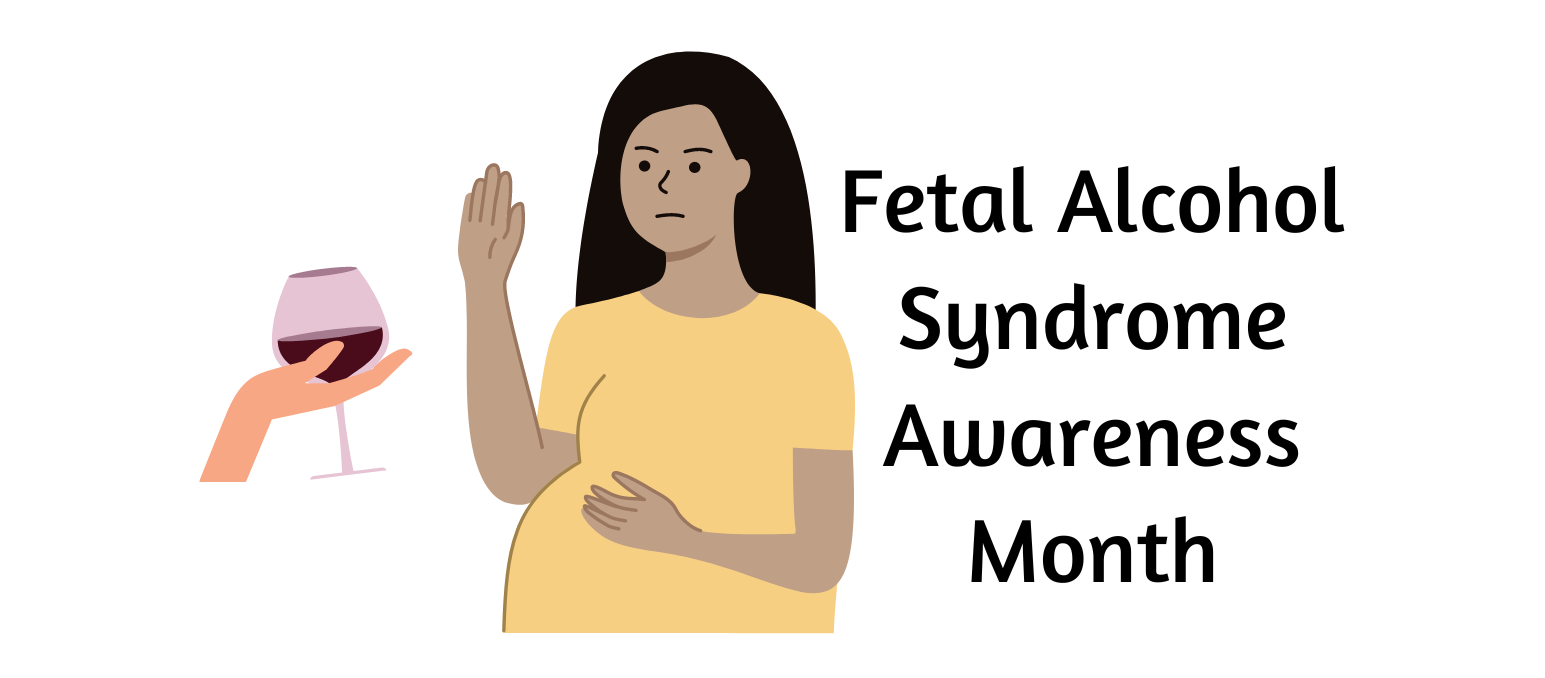Alcohol use during pregnancy can cause Fetal Alcohol Spectrum Disorders (FASD), which can be physical, behavioral, or intellectual disabilities and last a lifetime. FASD is often a mix of disabilities.
According to the Centers for Disease Control and Prevention (CDC), “fetal alcohol spectrum disorders are preventable if a developing baby is not exposed to alcohol before birth.”
A CDC study from 2018-2020 found that 1 in 7 pregnant people in the United States reported drinking alcohol in the last 30 days and 1 in 20 pregnant people reported binge drinking in the past 30 days. (Current drinking meant having at least one drink in the last 30 days and binge drinking meant the individual consumed four or more drinks on one occasion in the past 30 days).
While the CDC doesn’t know the exact number of people living with FASD, there have been numerous approaches taken to make an accurate estimate. By utilizing medical and other records, the CDC has identified 0.2 to 1.5 infants with FAS for every 1,000 live births in certain areas of the United States.
The National Institutes of Health funded community studies that used physical examinations to estimate FAS. Based on those studies, experts estimate that the full range of FASDs in the United States and some Western European countries might be as high as 1 to 5 per 100 schoolchildren.
Though there is no cure for FASD once present in a fetus, early identification and intervention can improve the prognosis.
“Fetal alcohol syndrome is the most involved diagnosis used when several physical and developmental abnormalities are present,” according to the CDC. Those signs and symptoms can include:
- Low body weight
- Poor coordination
- Hyperactive behavior
- Difficulty with attention
- Poor memory
- Difficulty in school (especially in math)
- Learning disabilities
- Speech and language delays
- Intellectual disability or low IQ
- Poor reasoning and judgment skills
- Sleep and sucking problems as a baby
- Vision or hearing problems
- Problems with the heart, kidneys, or bones
- Shorter-than-average height
- Small head size
- Abnormal facial features, such as smooth ridge between the nose and upper lip (this ridge is called the philtrum)
The only way to avoid FASD is not consume alcohol during pregnancy.
Sources:
https://www.cdc.gov/ncbddd/fasd/FASD-Awareness.html
https://www.cdc.gov/ncbddd/fasd/data.html

